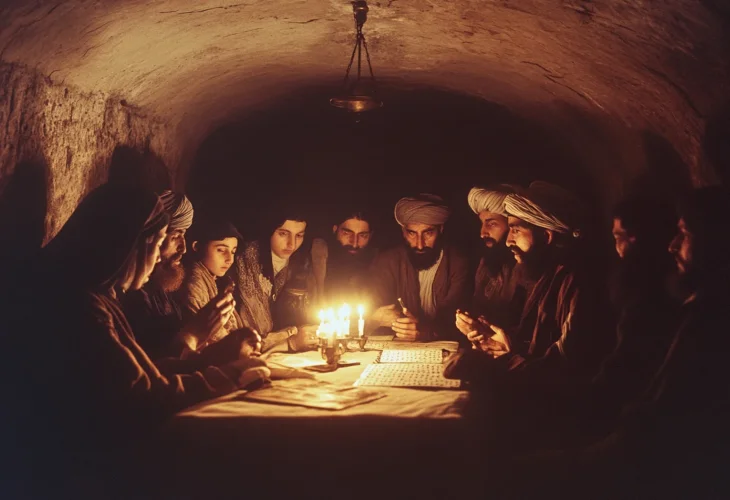History and Archaeology
120 Years in Hiding: The Story of Mashhad’s Secret Jews
How an entire Jewish community survived by outwardly living as Muslims while secretly keeping their faith for over a century

Most people have heard of the Anusim, the Jews of Spain who were forced to live as Christians while secretly holding onto their faith more than 500 years ago. But a lesser-known, equally heartbreaking chapter of Jewish history took place in Iran, in the city of Mashhad.
For 120 years, an entire Jewish community lived outwardly as Muslims while secretly practicing Judaism in their homes. From 1839 until the rise of the Shah in 1925, the Jews of Mashhad maintained this double life.
Jews had never been welcomed in Mashhad. The city was home to the shrine of Ali al-Rida, a revered Shia Imam, and Jews were forced to live outside the city walls so as not to “defile” it. Life was already full of hardships and persecution, but one tragic event sealed their fate.
On March 27, 1839, during the Shia fast day of Muharram, a Jewish woman with leprosy sought a Persian healer. The healer instructed her to kill a dog and wash her hands in its blood, claiming it would cure her. She hired a poor Muslim boy to do it, but when they argued over payment, he stormed into the street, furious, shouting that Jews had killed a dog on a holy day to mock Islam. His words lit a fire of hatred. A mob attacked, and a brutal pogrom followed.
After the violence, the townspeople gave the Jews of Mashhad an ultimatum: convert to Islam or face death. Rabbi Yosef Hakohen ruled, based on the guidance of Maimonides in his Yemen Epistle, that Islam is not considered idolatry. Therefore, it was permissible to outwardly adopt Islam in order to survive. The entire community followed his ruling.
Each family took on Muslim names but continued to use their Jewish names in secret. To prevent intermarriage with Muslims, parents announced the engagements of their daughters when the girls were still infants. In Mashhad, engaged girls wore earrings, so even tiny baby girls wore them to show they were already promised to another “Muslim,” when in truth it was to a fellow Jew.
The community went to great lengths to guard their Jewish identity. They bought meat from Muslim butchers so no one would suspect them, but then fed it to the dogs. Their shops stayed open on Shabbat, but a child inside would say, “Dad will be back soon.” In the basements of their homes, they dug small ritual baths with no heating, making them nearly unbearable in the freezing winters. They secretly baked matzot for Passover, not even telling their children, afraid that innocent words might reveal the truth.
Ironically, even after their forced conversion, many Muslims continued to call them impure and kept their distance, which in turn helped them avoid assimilation. For 120 years, the hidden Jews of Mashhad lived this way, guided by a secret rabbi who gave halachic direction. They even sent money to support the poor in the Land of Israel. At one point, Rabbi Mordechai Akalar began leading prayers in a sealed sanctuary. Outwardly, they continued their Muslim life, joining pilgrimages to Mecca, earning the title of Haji, and attending Islamic gatherings. Yet, the Muslims never stopped reminding them of their Jewish roots.
Finally, with the rise of the Shah in 1925 and the repeal of strict Sharia law, the Jews of Mashhad could come out of hiding. They left the city where they had endured so much pain, and many emigrated to Israel or the United States. What makes their story so remarkable is that, unlike the Anusim of Spain, who over generations largely assimilated and lost their connection to Judaism, the Jews of Mashhad emerged from their long concealment fully embracing their heritage and faith.
Today, proud communities of Mashhadi Jews can be found in Jerusalem, Bnei Brak, and New York. Around 12,000 Jews worldwide trace their roots back to Mashhad, a living testimony to their courage, resilience, and ingenuity in surviving 120 years of forced conversion while keeping the flame of Judaism alive.

